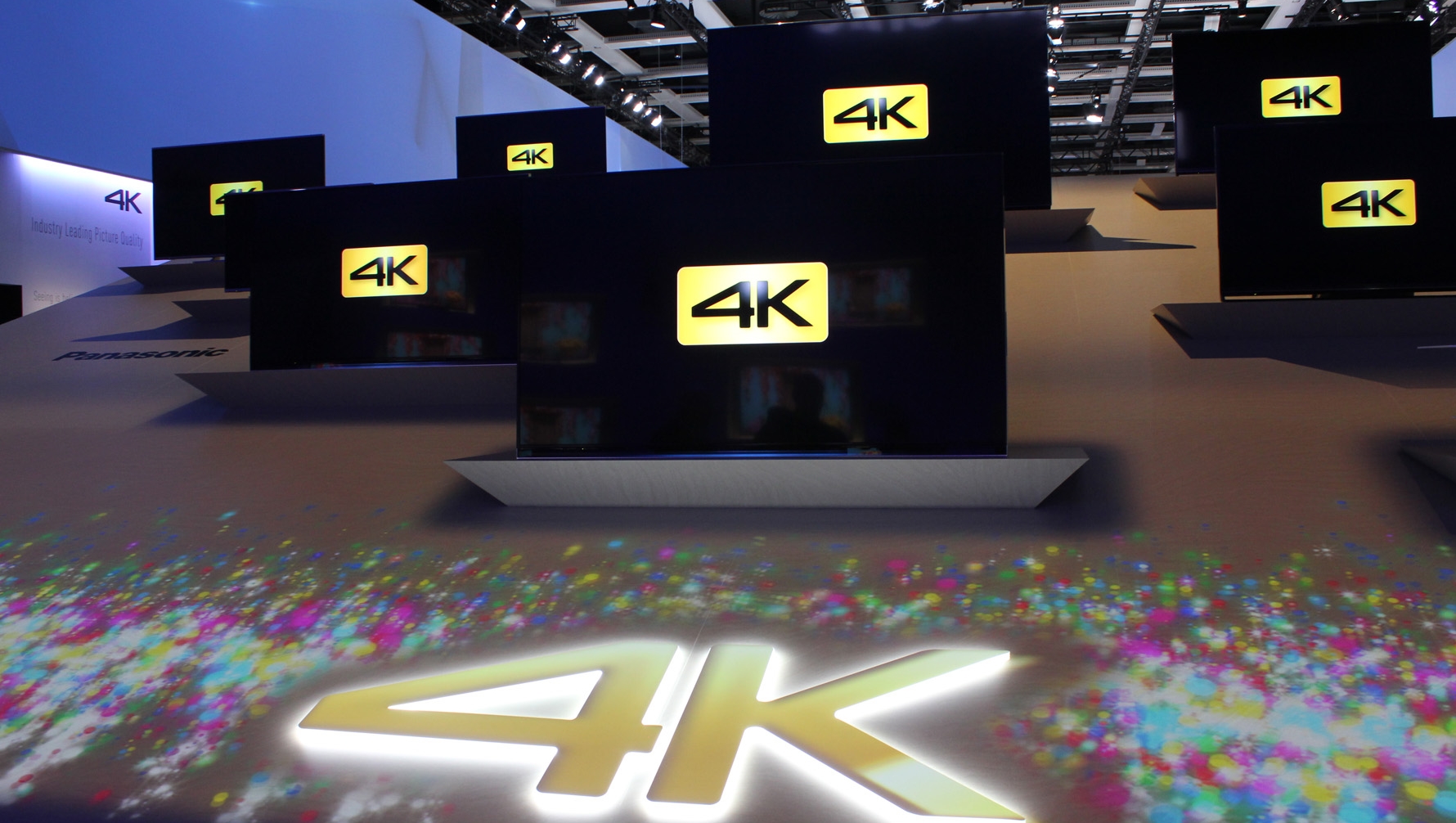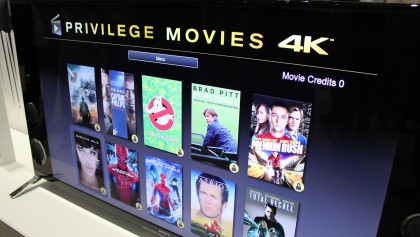4K Blu-ray is finally happening as more streaming options pour forth

The future of 4K movie and TV shows became a little clearer at this year's IFA tech show, as the Ultra HD drought appeared to finally come to an end.
Amazon's 4K Instant Video service, we're told, will land on Samsung and Sony TVs (and possibly other brands) in October, while European providers Maxdome, Wuaki.tv and CHILI all pledge to deliver 2160p Video on Demand of unspecified calibre.
Content will increasingly be used to persuade buyers to invest in a new screen. Sony announced its Privilege Movies 4K promotion, which gives anyone who buys a 2014 4K Sony TV this autumn a 500GB hard drive player on which you can unlock five 4K movies from the Sony Pictures stable.
This is from a choice of 10: the Amazing Spider-Man movies, Moneyball, Premium Rush, Total Recall, Salt, Ghostbusters, The Patriot, Battle: Los Angeles and Captain Philips. If you've already bought a screen, however, too bad.
Samsung even renewed talk of its 500GB UHD Video Pack, first promised at the brand's spring dealer conference. A joint partnership with 20th Century Fox and Paramount, this drive will apparently boast 40 4K-encoded titles, including Star Trek Into Darkness and Life of Pi.

4K Blu-ray is coming
"The specification for 4K Blu-ray should be enough to make most 4K TV owners tremble with excitement"
The biggest content announcement though came from the Blu-ray Disc Association, which finally broke its long running silence about a long mooted 4K disc upgrade. The first Ultra HD Blu-ray players would be available by the end of 2015, it parped. Better late than never.
Sign up for breaking news, reviews, opinion, top tech deals, and more.
Kazuhiko Kouno is Panasonic's Chief Engineer for Blu-ray development. He is responsible for the brand's most ambitious disc spinner to date, the astonishingly sophisticated DMP-BDT700, and has been instrumental in developing advanced colour signal processing for the format.
He told me that he's currently clearing his metaphorical desk in Osaka to begin work on Panasonic's first 4K Blu-ray player. "The final framework specification is complete," he told me. "Our first player is scheduled for the end of 2015."
The specification for UHD BD (no news yet on what it'll be called exactly) should be enough to make most 4K TV owners tremble with excitement.
The best picture quality ever
"4K Blu-ray discs will have up to four times the bitrate of Ultra HD content on Netflix"
The discs will be encoded in HEVC and support up to 2160/60p – although the majority of movie releases will inevitably still be 2160/24p. Players will be largely (but apparently not entirely) compliant with the highly advanced ITU-R recommended BT.2020 standard for resolution, colour and frame rates.
Ron Martin, VP of the Panasonic Hollywood Laboratory Contents Solutions Centre, sits on the BDA panel. "We're very close to final technology packages, to go through the licensing and manufacturing start-up process," he told TechRadar. "The end of 2015 is a reasonable target for us to hit."
Martin recognises time is now of the essence. "My fear is that package media will continue to disappear from the market," he says, "and the high quality that comes it will disappear with too."
The ongoing incremental evolution of Ultra HD hasn't exactly helped BD 4K spec development, Martin admits: "We could include all kind of wild and crazy things on it - but we have to produce something that's transportable to the consumer at a price point that's reasonable, yet still maintains a high standard of technical excellence," he reasons.
Pointedly, however, Martin has little doubt that Blu-ray 4K will offer better image quality than we'll see on a VoD stream from Netflix and rivals.
"Streaming brings infrastructure baggage. Bandwidth is lacking. In order to compromise for that, you compromise with the picture quality. So why bother? In a next-generation Blu-ray environment we'll be looking at anywhere between 50-70Mbps off the drive. Going down to 15.6Mbps (as required by Netflix) just mandates compromise, and that's if you can get sustained 15Mbps. Even with good infrastructure that's hard to accomplish…"
- Find your next screen from our selection of the best 4K TVs

Steve has been writing about AV and home cinema since the dawn of time, or more accurately, since the glory days of VHS and Betamax. He has strong opinions on the latest TV technology, Hi-Fi and Blu-ray/media players, and likes nothing better than to crank up his ludicrously powerful home theatre system to binge-watch TV shows.